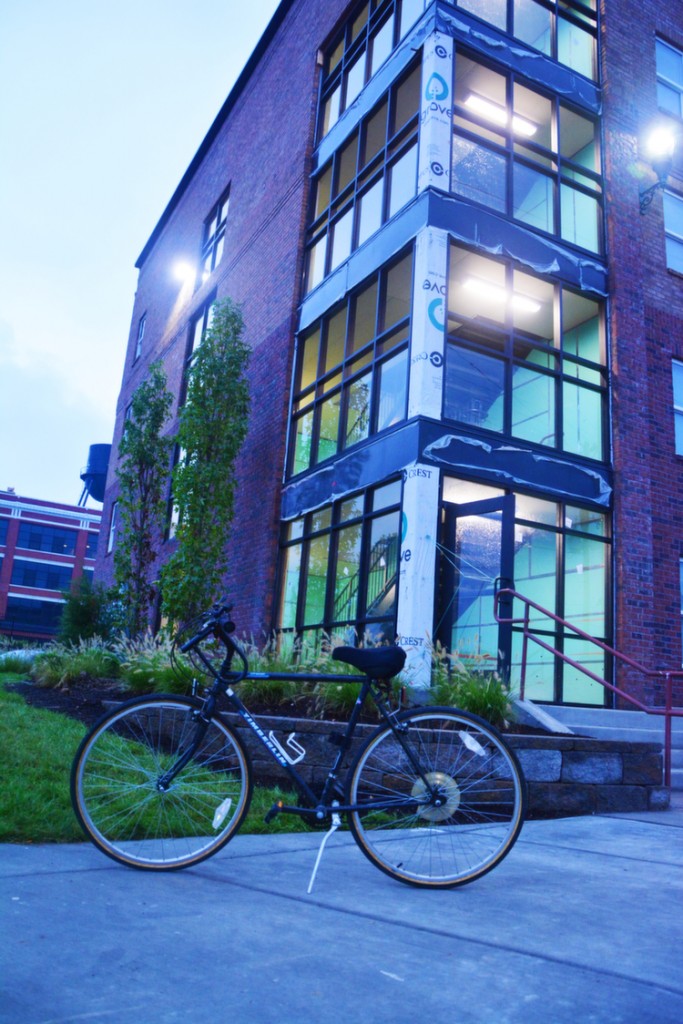By Jacob M. Abrahamson
As construction continues on The Grove, U of L is beginning to look back on what led them to believe that the property would be move-in ready.
“They showed me a section of a building, and that building was ready,” said U of L Housing Director Shannon Staten. “I was on site on Friday and I was assured by the management that they were ready to take care of the 444 students they had leased to.”
Staten could not confirm that The Grove’s decision to only show her a completed section of the building was made in order to convince the university that the property was fully inhabitable.
“I cannot speculate on whether that was intentional or not,” she said. “I did a tour, and what I walked away with was not something that thrilled me because it was bright, shiny and new, but it was at least sufficient to be able to move students into.”
That image of The Grove was quickly altered when many students found themselves unable to move into rooms.
Staten and other university representatives said that throughout the process they pressed The Grove to prepare to send students to hotel rooms, but were told that the action was unnecessary.
“We were assured that they were going to be ready, and that is part of why we are so disappointed,” said Dean of Students Michael Mardis. “We wanted to help them if that was going to be a problem”
Mardis said that while there may have been legitimate construction delays, the company should have been more prepared to send students to hotels and reimburse rent.
“There are some things that are preventable and some things that aren’t preventable. This was totally preventable,” said university spokesman Mark Hebert.
According to Mardis, the executive leadership of Campus Crest, the parent company of The Grove, came to Louisville to fix the situation after called to by the university.
Last Monday’s town hall meeting, where it was announced that one month’s rent would be reimbursed to all residents, happened after the company agreed to demands made by the university on behalf of students.
“There are unfortunate situations that happen, so you have to respond to those situations,” he said. “But there needs to be good communication.”
U of L did ‘due diligence,’ but did not expect mistakes made by Grove parent company
As students learn more about the problems with The Grove Louisville, questions begin to arise about the company in charge of it all, Campus Crest, and how the university decided they were a good fit for affiliation.
“If it’s a project that we are fairly interested in then I will do some reference checking,” said Shannon Staten, who was responsible for calling six campuses who have Campus Crest properties nearby.
“I found that there were a couple different campuses where they had not opened on time,” which, she said, is not out of the ordinary. From what she gathered, Campus Crest took care of students in these situations.
U of L’s campus is unique in the way it affiliates, she said, so the campus housing officials on other campuses that she spoke to did not know everything about problems Campus Crest had.
“I didn’t hear anything that said to me what would happen happened.”
One resident, junior Phillip Moore, brought up past construction issues at the recent town hall meeting, but received no response from Angel Herrera, the representative leading the meeting. Campus Crest COO, Rob Dann, gave a statement to the Cardinal about these issues.
“While we always try to deliver the absolute best experience for our residents from the time they move in to the time they leave us, like other property owners and operators we have experienced issues, including construction delays, at a small number of our communities in the past.”
The Cardinal discovered the following construction issues in Campus Crest’s past:
August, 2007: Central Washington University — Students at The Grove in Ellensburg, Wash. were asked to change leases by one-month due to a mistake on the papers. Some rooms were delayed.
August, 2011: University of Missouri — The Grove Columbia was delayed for 140 students. It also violated Mizzou’s “three-strike” rule.
September, 2011: University of North Texas — A balcony collapsed, injuring three, at The Grove Denton. Architects cited a design flaw.
August, 2012: Northern Arizona University — The Grove Flagstaff was not ready in time for move-in day.
January, 2013: University of Maine — The Grove Orono experienced mold, power outages, frozen pipes and faulty appliances.
August, 2013: Penn State University — The Penn State Grove were forced to move in later by one week or more due to construction delays.
August, 2014: University of North Dakota — The brand-new Grove at UND was afflicted with mold when it opened, but allowed students to move in anyway.
University of Louisville — The Grove Louisville does not meet the construction deadline and allows students to move in to the unfinished building. Unsecured facilities make crime a problem as well.
University of Florida — The Grove Gainesville is also not completely finished, according to some residents. Some students were forced to move into hotels while construction of their units was completed.
When asked if the affiliation process would change because of The Grove, Staten said that her office was already planning to review the process before this happened.
“I’m sure that there will be some adjustment as to ways we are able to check the type of property they are or the type of way they manage their properties,” she said. “It is just difficult because it is private entities.”
“We did do due diligence as best we could on this company,” said Mark Hebert, ” but going forward, I think we’ll go the extra mile to maybe look with a more suspect eye and dig a little further.”




